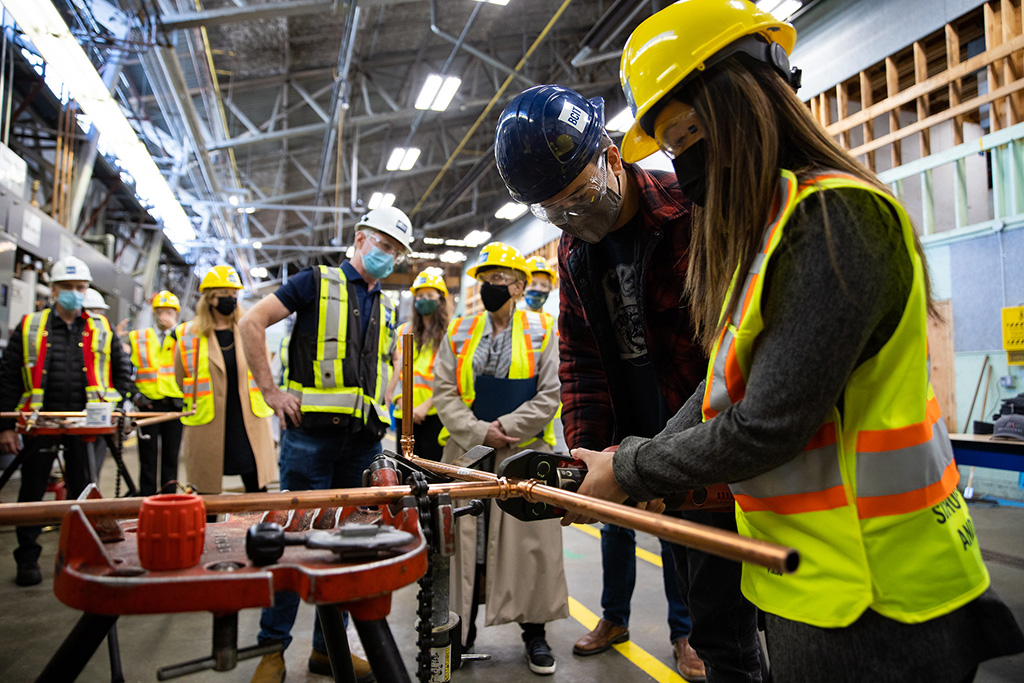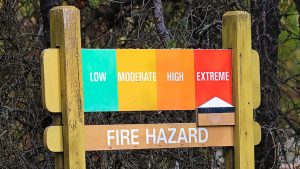B.C.’s Ministry of Labour is looking at changing regulations to protect more young workers from hazardous jobs, including construction.
Officials are asking for public feedback on regulations that are being developed to define what types of jobs are too hazardous for youth under age 16, or possibly up to 18 for certain jobs.
“We want to understand the concerns and expectations that young people, parents, guardians, workers and employers have around employment of young workers in hazardous industries,” stated the ministry.
Construction has been identified by the province as potentially hazardous work for young people. The changes would apply to general construction labour, as well as demolition, excavation, wrecking, roofing, electrical and plumbing, or flagging on a construction site.
The province is also looking at similar regulations for forestry jobs, food processing, energy industries, production processes for metal processing and work that could expose someone to harmful materials like asbestos.
Dave Baspaly, president of the Council of Construction Associations of B.C., explained the construction sector does not want to see young people put in danger or exploited, but hopes the ministry’s changes don’t inhibit efforts to bring new people into the industry.
“There is no question that across all sectors there have been challenges with the underage workforce in terms of exploitation and industries using them because of the inexperience with understanding their rights,” said Baspaly. “Nobody wants anything like that in construction.”
However, he explained there are many school programs that use construction sites to give young people a taste of the trades. Some young apprentices are on the cusp of being impacted by the changes.
There are also family businesses with long legacies in the trades who often bring family members in early.
“We wouldn’t to see those things break down,” said Baspaly. “We would urge the minister to temper this legislation with some form of track for youth to be exposed to construction opportunities provided it is done in a safe way.”
He noted the sector is desperate for more qualified tradespeople.
“One of the ways to get people fired up about these opportunities is short-term exposure to what those opportunities are, the pay and the neat things construction has,” said Baspaly. “We would like to see some component of that maintained and maybe some safeguards added.”
The province plans to implement the changes in two phases. In the first phase, which came into effect on Oct. 15, 2021, the government began requiring a permit from the director of employment standards to employ a child 15 or younger – up from the previous requirement of 11 or younger.
The province also allowed an exception for 14 and 15 year olds to perform specific types of “light work” without a director’s permit but with parental consent.
The second phase, which is the subject of the public engagement, will be identifying and defining the work that will be prohibited for young people up to under age 19 due to its hazardous nature.
Provincial data shows that between 2016 and 2020, 669 B.C. workers under 19 were injured in construction jobs, of which 26 suffered long-term disabilities. The average injury rate for all occupations is 2.1 per 100 workers.
In some construction work, this rate is far higher. Plumbing and HVAC have an injury rate of 4.5, roofing is 5.4, construction labour is 7.0 and framing/residential forming is the highest of the construction sub-sectors with 7.8.
According to WorkSafeBC, between 2019 and 2021, 3,694 claims were made by construction workers under the age of 24 for short-term disability, long-term disability or work-related death benefits. Two construction workers under the age of 24 died in 2019. None died in 2020 or 2021.
In Saskatchewan, Manitoba, Ontario and the Northwest Territories, workers must be 16 to work on a construction site.
Feedback on the regulations can be given through an online survey here.











Recent Comments
comments for this post are closed